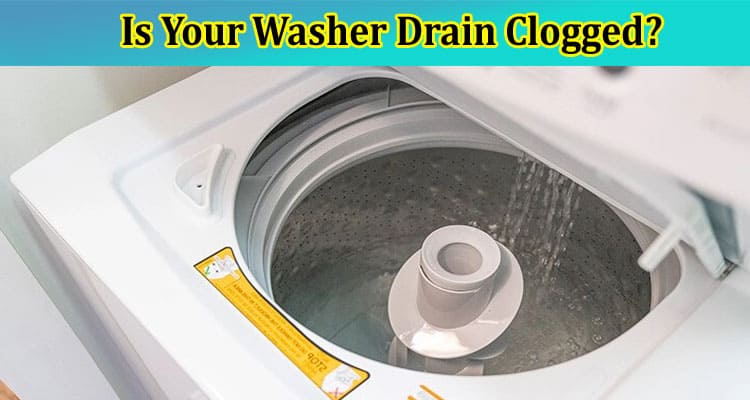Every homeowner has experienced it at some point—the frustration of a clogged washer drain. When water from your washing machine doesn’t drain properly, it can lead to a messy and inconvenient situation. This article tells you why a washer drain clogged, how a professional plumber can assist you, and tips for preventing blockages in your washer drains.
Identifying a Clogged Washer Drain
Before diving into solutions, it’s crucial to understand the signs of a clogged washer drain:
Slow Drainage: If you notice that water takes significantly longer to drain from your washing machine than usual, it’s a clear indicator of a blockage.
Water Backup: Water backing up into the washing machine or even onto the floor is a more severe sign of a clog. This requires immediate attention to prevent damage.
Unusual Noises: Gurgling or bubbling sounds coming from the drain when the washer is in use can suggest an obstruction in the drainpipe.
Common Causes of Washer Drain Clogs
Understanding the reasons behind washer drain clogs can help you take preventive measures and address the issue effectively:
Lint and Debris: One of the most common culprits is lint, soap residue, and debris from your laundry that accumulates over time. These particles can block the drain hose or the pipes.
Foreign Objects: Sometimes, small items like coins, hairpins, or even socks can find their way into the drain, leading to blockages.
Soap Scum and Detergent Buildup: Excessive use of laundry detergent can result in the buildup of soap scum in the drainpipes, hindering water flow.
Hard Water Deposits: In areas with hard water, mineral deposits can accumulate in the drainpipes, narrowing the passage for water.
Improper Installation: Incorrect installation of the drain hose, such as kinking or a lack of proper slope, can impede drainage.
How a Professional Plumber Can Help
When you encounter a stubborn washer drain clog, it’s often best to seek assistance from a professional plumber. Here’s how they can help:
Advanced Tools and Equipment: Plumbers have specialized tools like drain snakes and hydro-jetting equipment that can effectively clear even the most stubborn clogs.
Inspection and Diagnosis: A plumber can inspect your plumbing system to identify the exact location and cause of the clog. This ensures that the problem is addressed comprehensively.
Preventive Maintenance: Plumbers can provide valuable insights into preventing future clogs, such as recommending regular drain cleaning or suggesting alterations to your drainage system.
Repairs and Replacements: In cases where a damaged pipe or a malfunctioning part is the root cause of the clog, a plumber can perform repairs or replacements as needed.
Preventing Washer Drain Clogs
Prevention is often the best approach to dealing with washer drain clogs. Here are some tips to keep your washer drain clear:
Use a Mesh Lint Trap: Install a lint trap on the end of your washing machine’s drain hose to capture lint and debris before it enters the drainpipe.
Regularly Clean the Trap: Empty and clean the lint trap after each load of laundry to prevent lint buildup.
Use the Right Detergent: Follow the manufacturer’s guidelines for the appropriate amount of detergent to avoid excessive soap scum buildup.
Avoid Overloading: Overloading the washing machine can lead to incomplete rinsing and increased debris in the drain.
Periodic Maintenance: Consider scheduling regular drain cleaning with a professional plumber to prevent the accumulation of stubborn clogs.
In conclusion, knowing why a washer drain clogged is important, because ignoring it can worsen the problem over time. Recognizing the signs of a clog, understanding the common causes, and seeking professional assistance when needed can help you keep your washer drain functioning smoothly.








